Lago Di Bolsena, Italy 2
Lago Di Bolsena is a lake in central Italy, not far from Viterbo where I stayed for three weeks in 2009. It is also the site of a battle in WW II where the remains of 600 soldiers lie in a cemetery above the shore. This post will look at the pictures I made that show the cemetery about an hour before a thunderstorm struck. I was there in late October, 2009.
I taught for three summers in Viterbo in the 90's and had driven by the entrance to the cemetery several times in those years. I remember I had even parked and walked down the path to see it at one point, carrying my 8 x 10 camera over my shoulder. Funny how a place can be nothing at one point and be everything at another. Back then I wasn't thinking of series pictures, I was thinking single pictures for the big camera and the cemetery held nothing for me.
But in 2009 the cemetery in Italy became another in a series of series pictures of cemeteries. These are loaded places for me, these cemeteries that I photograph, for they are so charged with the past and the residue of former lives. I've already referenced two in this blog: Mt Auburn and Oakesdale.
This is on a plaque at the entrance: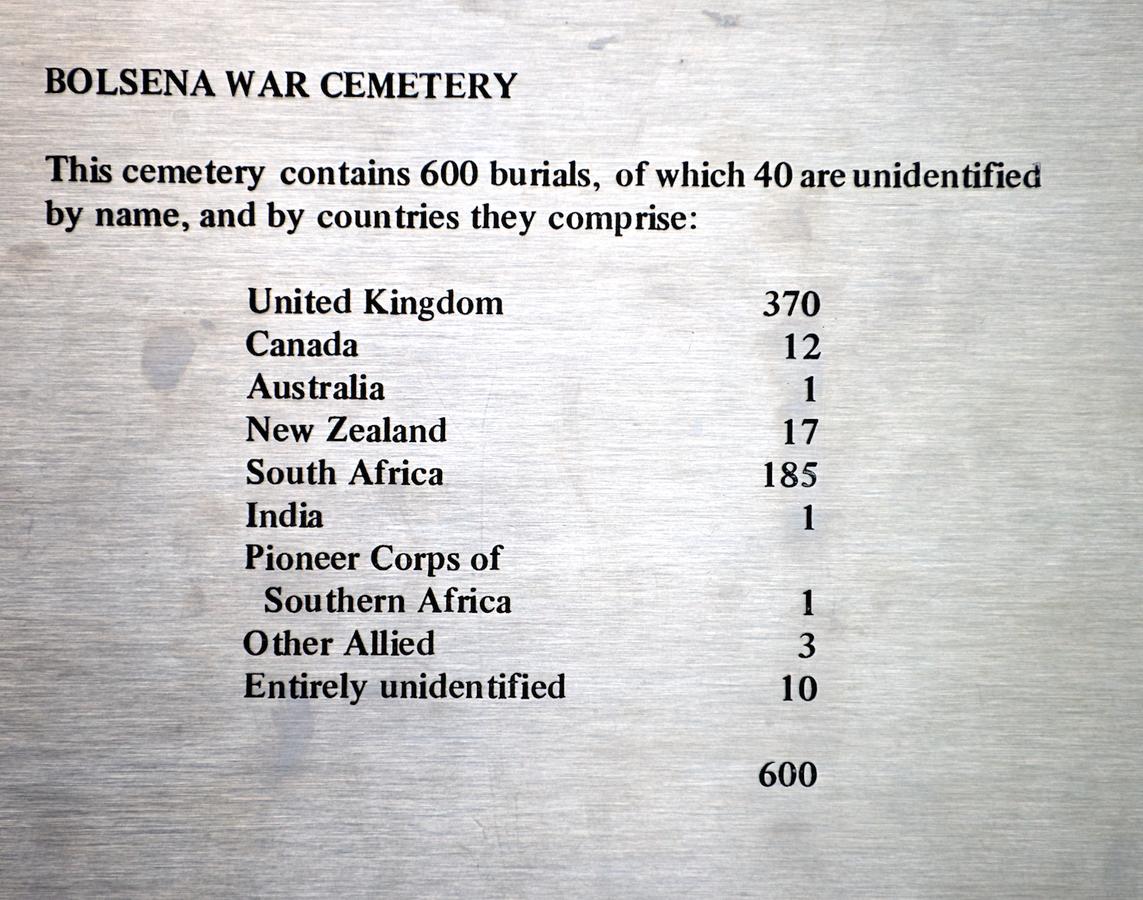 The cemetery was built by the US after the war and is maintained by the US as well. No Americans are buried there, however.
The cemetery was built by the US after the war and is maintained by the US as well. No Americans are buried there, however.
The Lago Di Bolsena series starts by showing the path down the hill to the site from the road: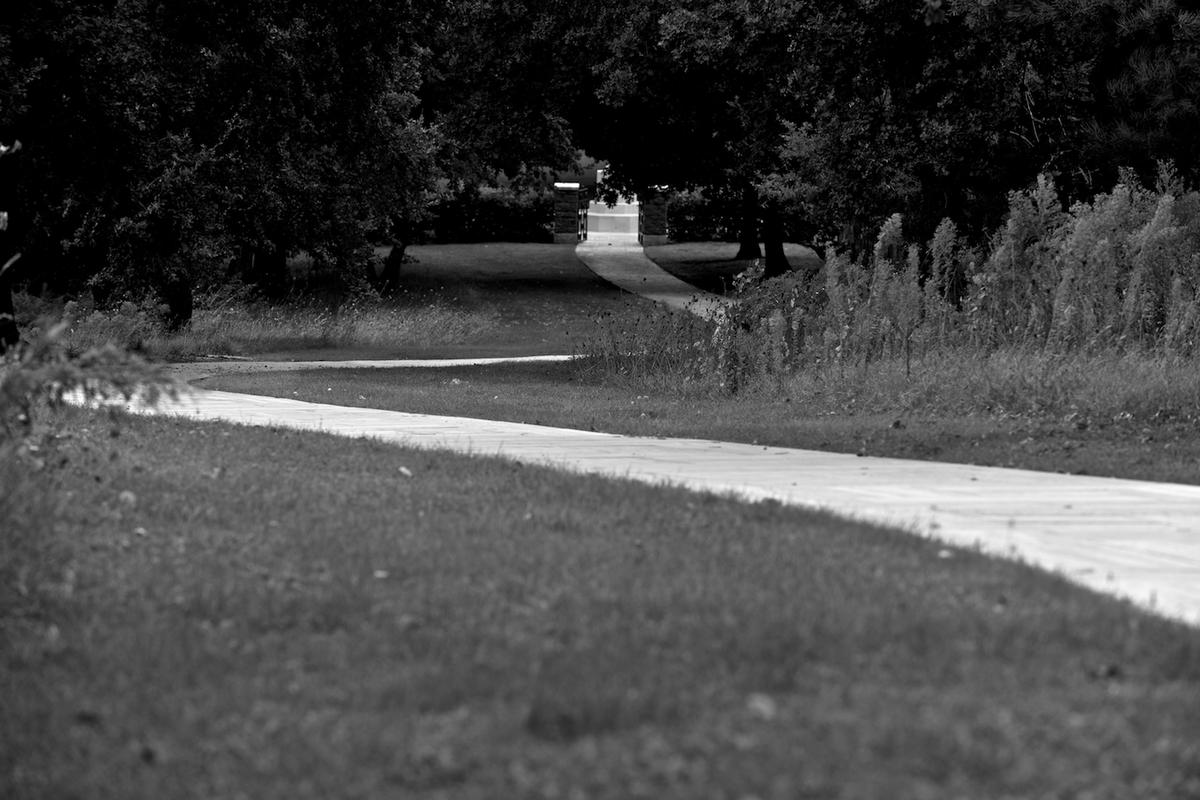 and then opens out to show the plot, the gravestones laid out in neat rows and the trees which form a perimeter:
and then opens out to show the plot, the gravestones laid out in neat rows and the trees which form a perimeter: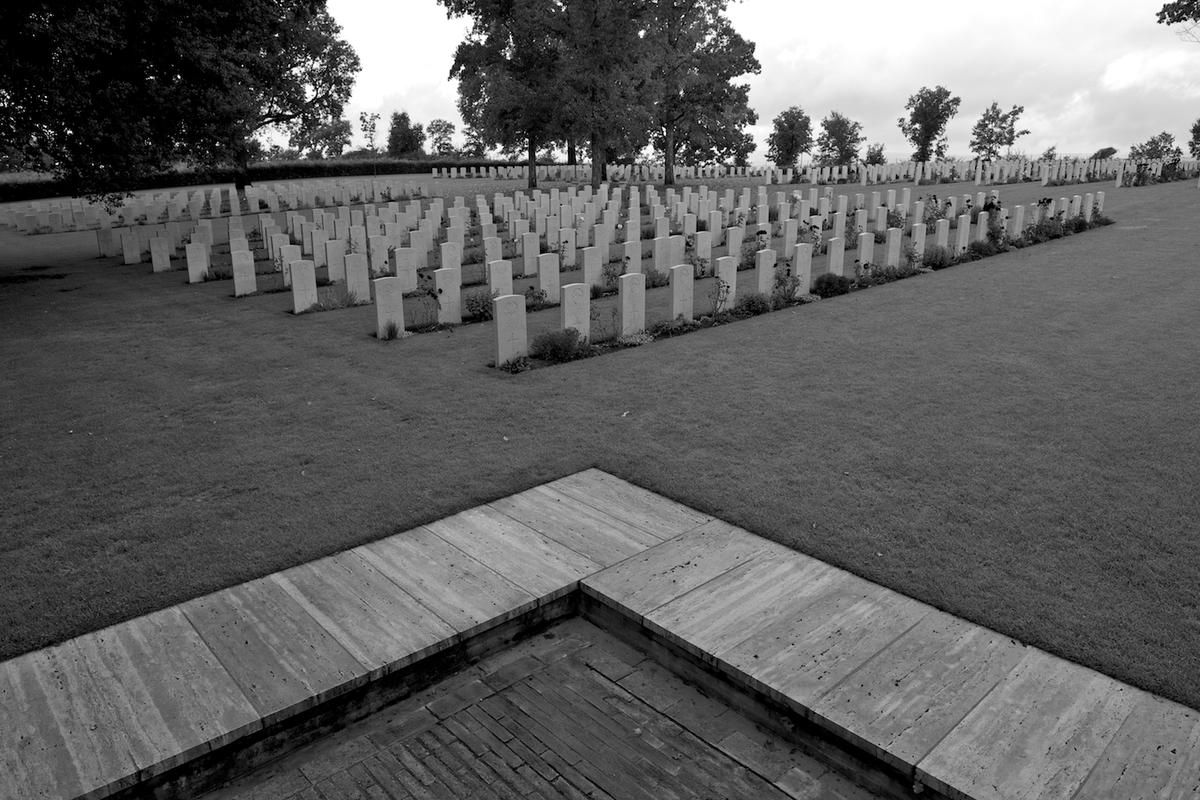 I wanted to try to convey a sense of discovering the place. The series is a "walk around" just as I had done at Oakesdale, Washington (Oakesdale) twelve years earlier.
I wanted to try to convey a sense of discovering the place. The series is a "walk around" just as I had done at Oakesdale, Washington (Oakesdale) twelve years earlier.
Next, I worked to describe the place itself, and the remarkable day it was.

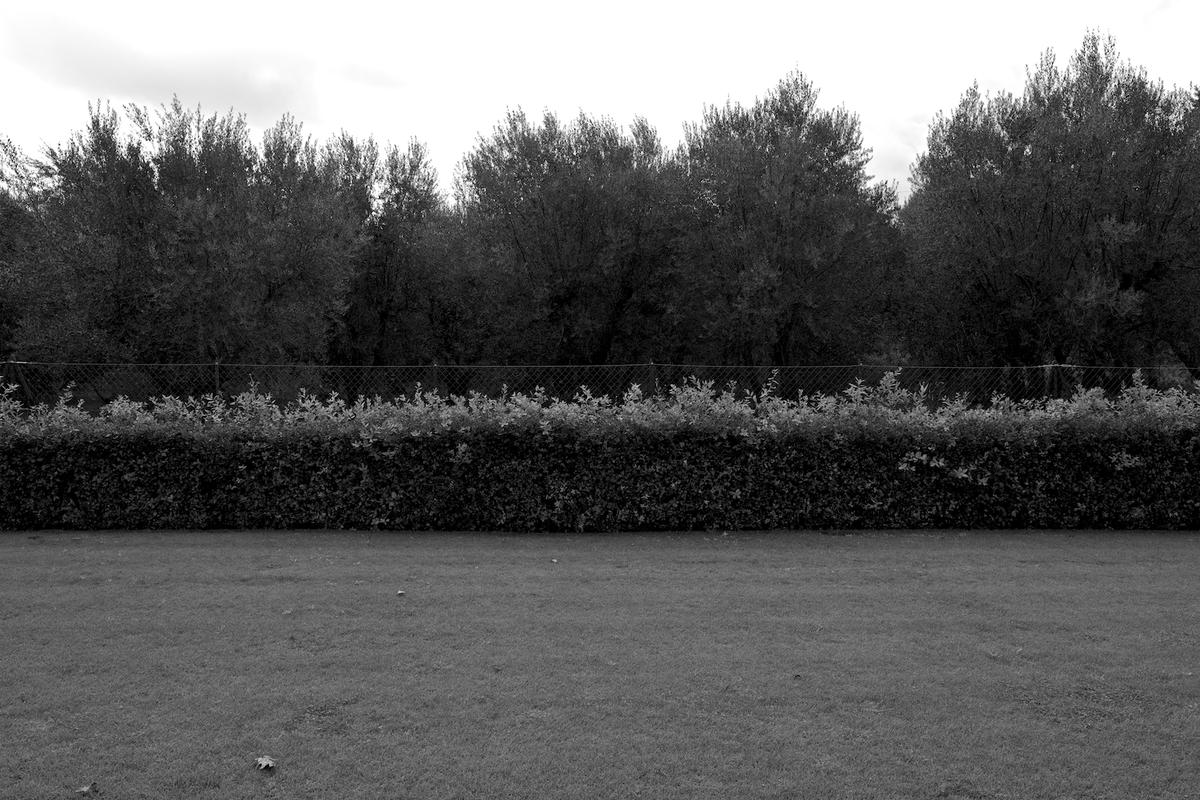 It being October and windy leaves had fallen from the nearby trees and carpeted the grass which was so smooth and cut so close it looked like a putting green on a golf course.
It being October and windy leaves had fallen from the nearby trees and carpeted the grass which was so smooth and cut so close it looked like a putting green on a golf course.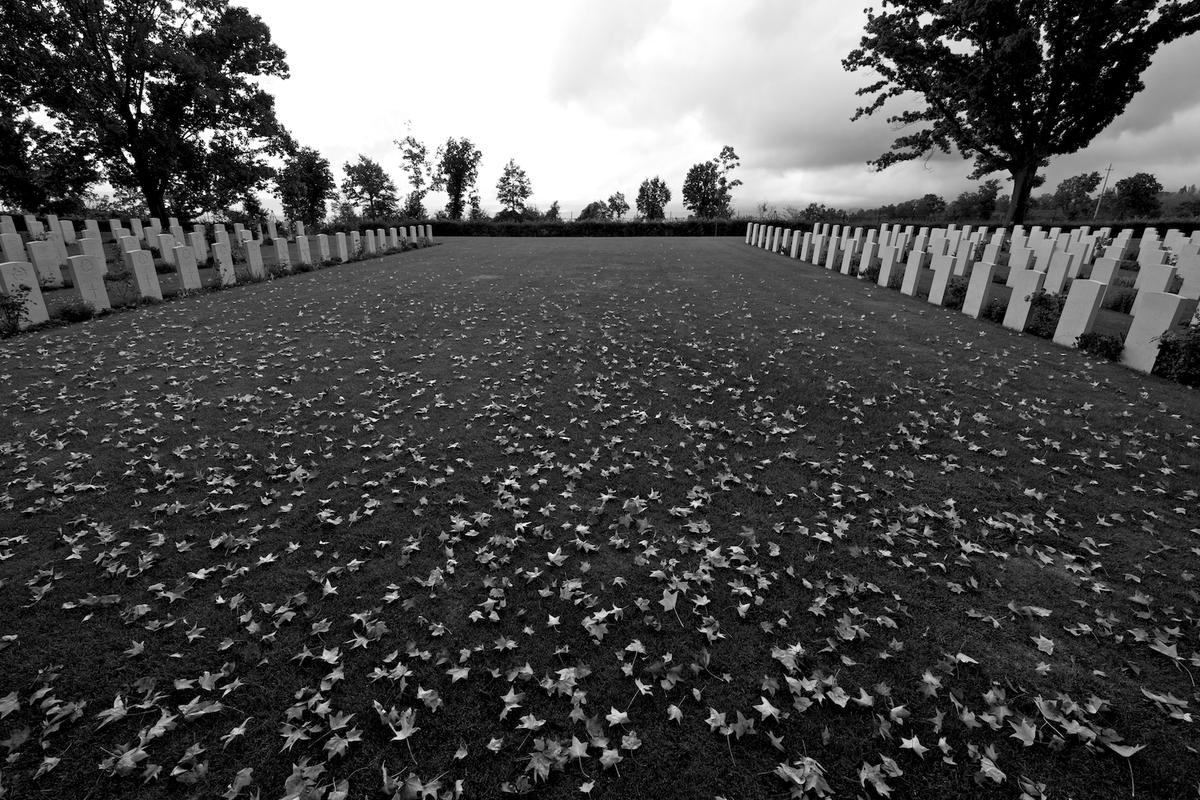 I'm not going to continue here with a blow by blow description of each photograph as the full series is now on the site (Lago Di Bolsena) but suffice it to say that the photographs progress to show the layout of the stones and the story reaches a climax at an image of a growth at the bottom of one of the trees inside the cemetery:
I'm not going to continue here with a blow by blow description of each photograph as the full series is now on the site (Lago Di Bolsena) but suffice it to say that the photographs progress to show the layout of the stones and the story reaches a climax at an image of a growth at the bottom of one of the trees inside the cemetery: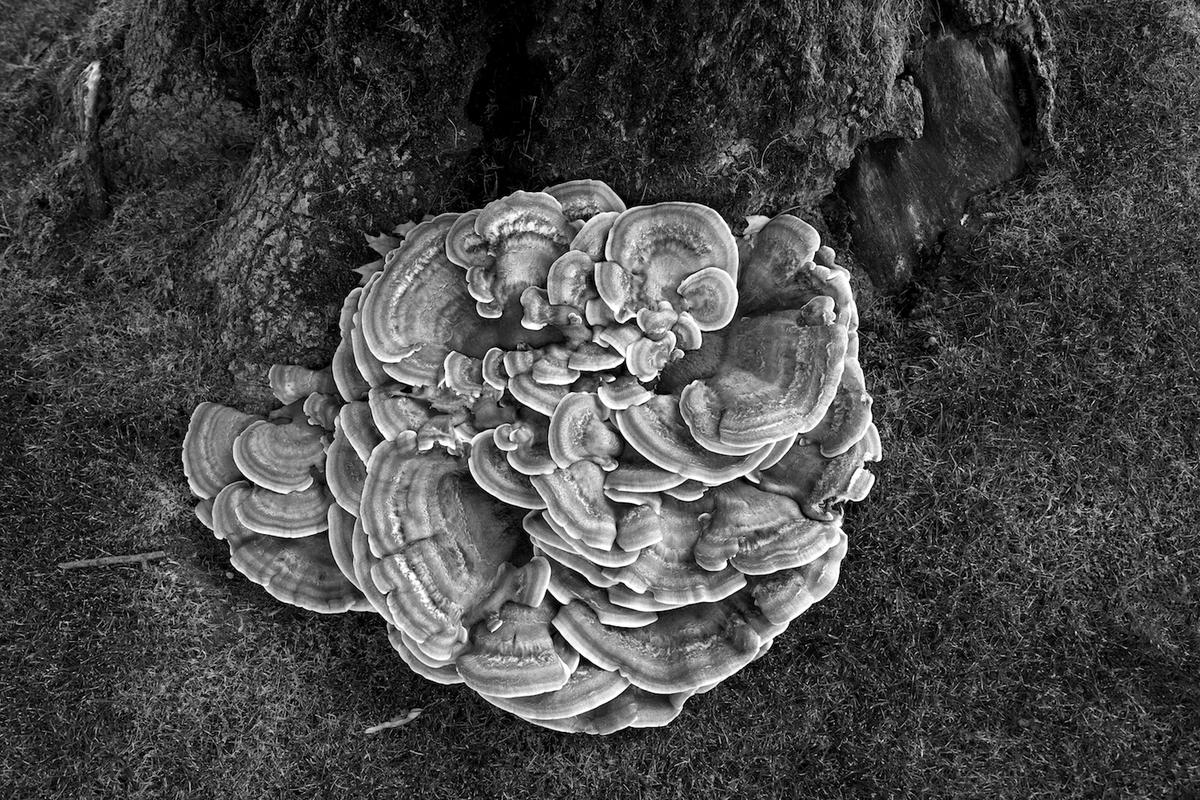 that seems, to me, like a gorgeous tumor. Why? Because, while very beautiful the growth is also abhorrent, like the cemetery itself. The series ends with an image looking back up the hill as I leave the cemetery behind me:
that seems, to me, like a gorgeous tumor. Why? Because, while very beautiful the growth is also abhorrent, like the cemetery itself. The series ends with an image looking back up the hill as I leave the cemetery behind me:
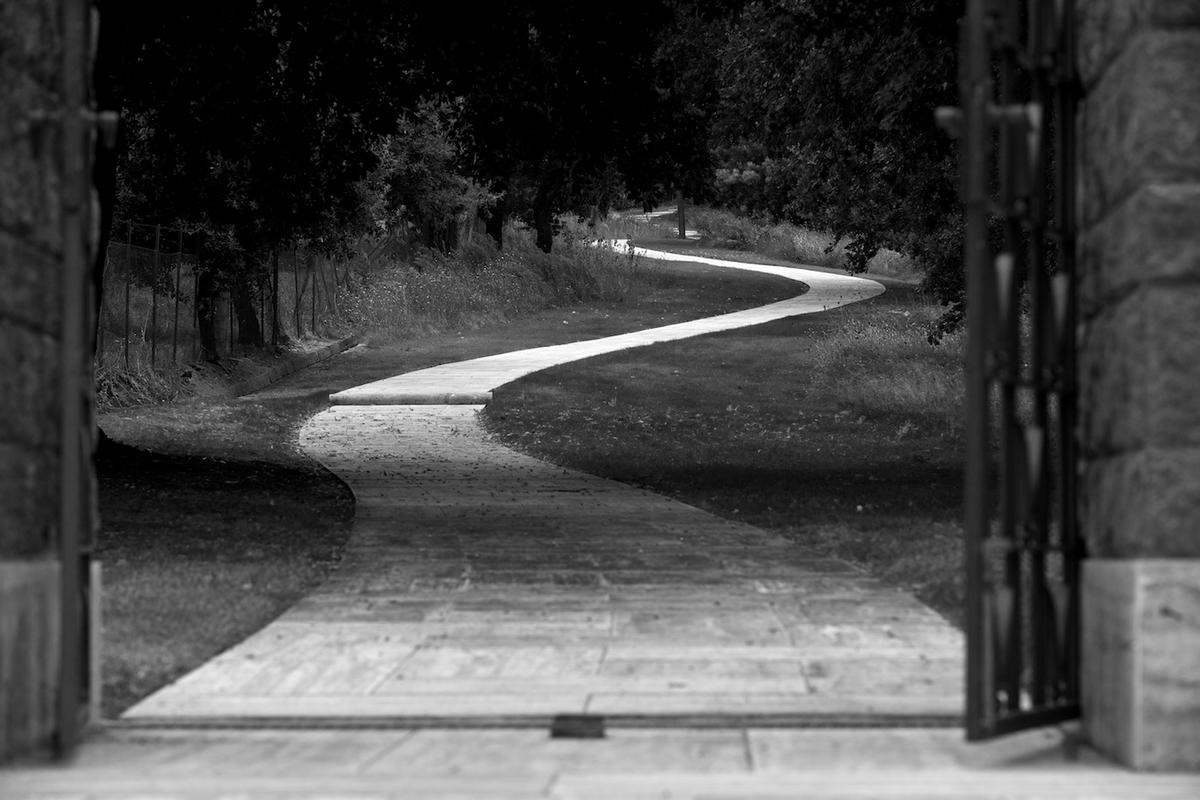 I'll let you in on a conflict I had as I worked this series in postproduction back at home the following winter. It took me awhile to get to the pictures as I was working on other projects, plus I travelled and stayed in Austin, Texas and Moab, Utah that same year. But when I did I decided the set would be rendered in black and white. But one of the pictures
I'll let you in on a conflict I had as I worked this series in postproduction back at home the following winter. It took me awhile to get to the pictures as I was working on other projects, plus I travelled and stayed in Austin, Texas and Moab, Utah that same year. But when I did I decided the set would be rendered in black and white. But one of the pictures
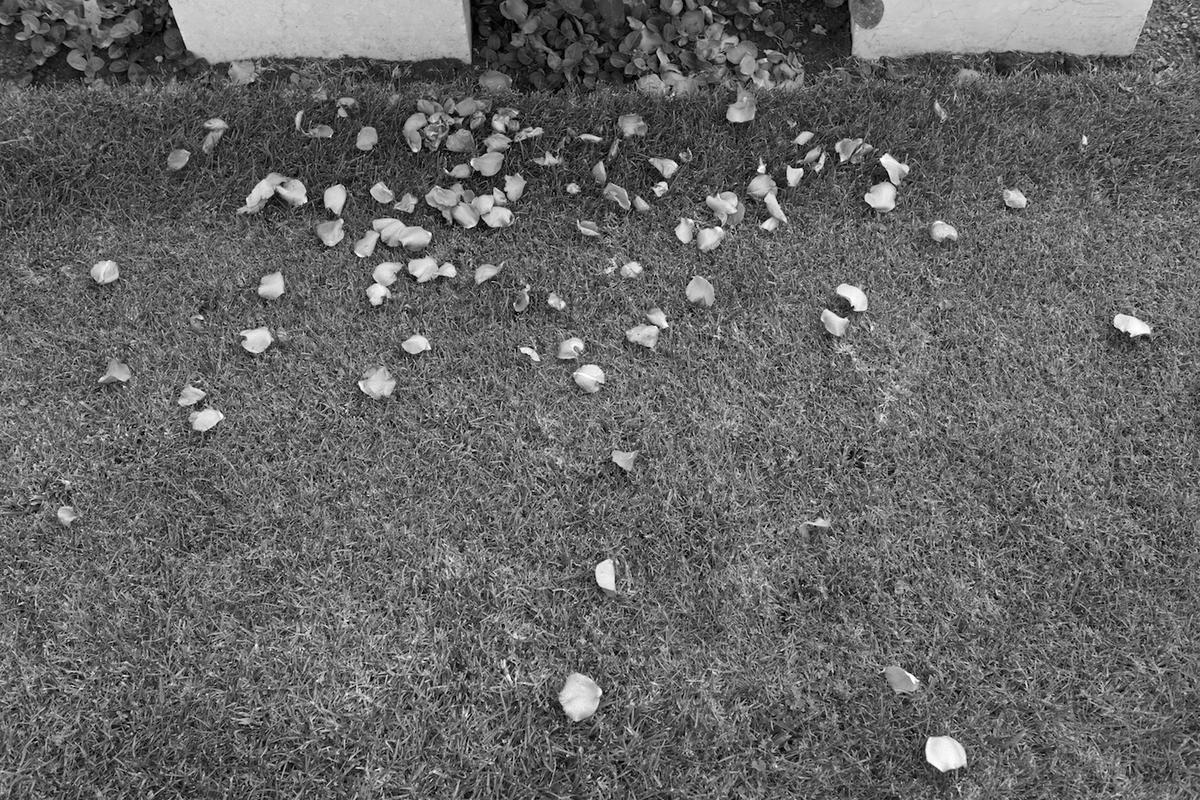 which showed rose petals scattered on the grass in front of two gravestones was com-pelling in color
which showed rose petals scattered on the grass in front of two gravestones was com-pelling in color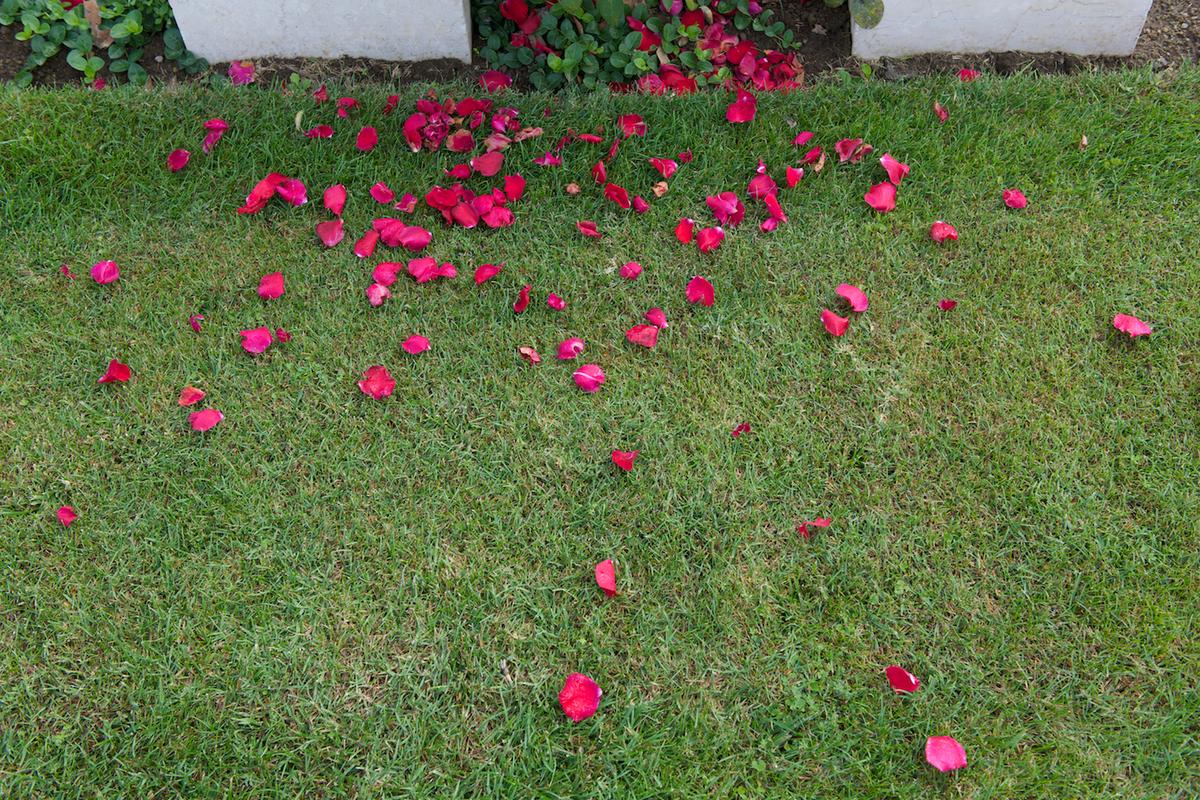 and as I worked through the series I played with the idea of including it as a single color image in the set of black and whites. Rose petals on a carpet of green at the bottom of two gravestones in a cemetery? Would it work and drive the point home or be an over the top and unbearable cliché? This reminded me of the use of color by Spielberg in the black and white film "Schindlers List". If you remember this was a controversial device. So, what did I do? Did I step up and say the hell with the consequences? You'll see what I did if you go to Lago Di Bolsena on the site to find out. Now three years later, I believe I made the right decision.
and as I worked through the series I played with the idea of including it as a single color image in the set of black and whites. Rose petals on a carpet of green at the bottom of two gravestones in a cemetery? Would it work and drive the point home or be an over the top and unbearable cliché? This reminded me of the use of color by Spielberg in the black and white film "Schindlers List". If you remember this was a controversial device. So, what did I do? Did I step up and say the hell with the consequences? You'll see what I did if you go to Lago Di Bolsena on the site to find out. Now three years later, I believe I made the right decision.
The last point I wanted to make is that the prints in this portfolio are made smaller than usual for me, on 13 x 19 inch paper. This wasn't for any technical reason except that I felt the photographs would be more intimate if made smaller, as images more easily held in one's hands become something tactile and closer. And finally, although printed as duotones, they are primarily neutral in color as you see here.
I hope you enjoy this series.
